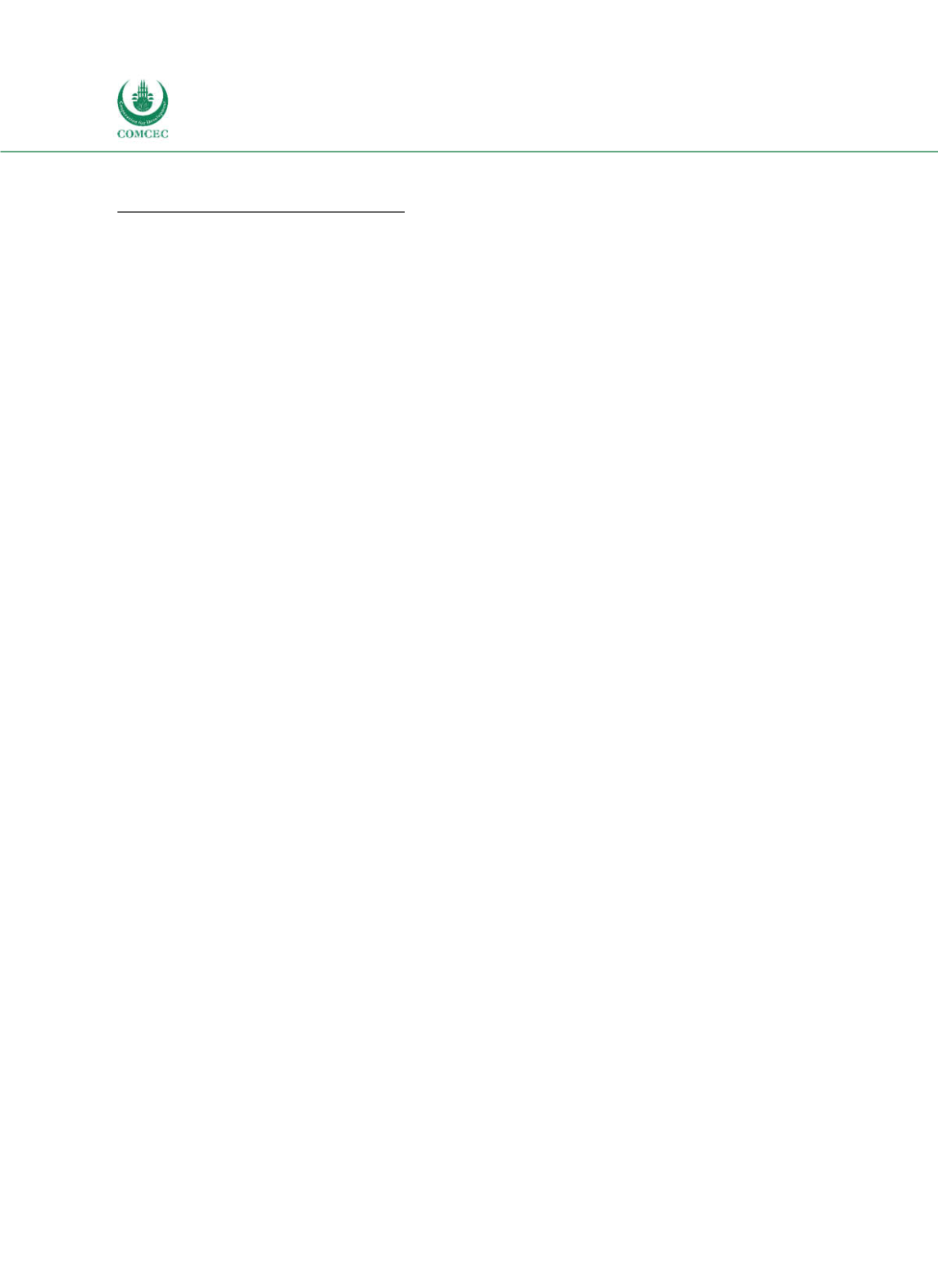

Improving Public Debt Management
In the OIC Member Countries
122
B) Public Debt Management
Governance and Strategy Development
Legal framework
The High Committee for Budget Preparation, consisting of representatives from the Ministry of
Finance and National Economy (MoFNE) and the Central Bank of Sudan (CBoS), as well as
representatives from academia and the private sector, is responsible for the coordination of
public debt management in Sudan. The committee decides on the borrowing composition and
the borrowing limits of the year, based on proposals by the Domestic Debt Unit within the
MoFNE and the External Debt Unit of the CBoS (Osman 2013). The presented borrowing mix
has to be submitted and approved by the National Assembly. According to the Bank of Sudan
Amendment Bill from the year 2005, the CBoS is in addition responsible for the issuance and
management of government securities. Apart from that, the CBoS is allowed to grant
temporary financing to the government up to 15% of the total projected public revenues for
the fiscal year (Osman 2013).
Managerial structure (incl. coordination with other policies)
Several international institutions have supported the development of more efficient debt
management practices in Sudan. For instance, the World Bank conducted a Debt Management
Performance Assessment (DeMPA) in 2012. Furthermore, Sudan developed an “Arrears
Clearance and Debt Relief Strategy” (ACDRS) under the technical assistance of the African
Development Bank in 2013 and benefitted from training with respect to debt sustainability
analysis (DSA) and debt management performance assessment (DeMPA) (ADB 2014).
Additionally, a World Bank mission visited the country in 2013 in order to “develop a reform
plan for building debt management capacity and improving performance over the medium
term” (World Bank 2013, p. 2). This included areas such as the legal framework of debt
management, the organizational structure, operational management and domestic debt market
development. In the latter case, the reforms specifically attempt to enhance options for
domestic financing through the introduction of
sharia
compliant shortterm debt instruments
(World Bank 2013).
A second World Bank mission in 2015 reviewed the reform process in the
light of changes in regulatory and macroeconomic conditions (World Bank 2015).
In line with the evaluation of the World Bank, Sudan currently seeks to review and strengthen
the institutional setting of debt management, which continues to be highly
fragmented (World
Bank 2013). In 2015, Sudan created the new Debt Management General Directorate at the
Ministry of Finance and Economic Planning (MoFEP), which is designated to bundle all
operations regarding both external and domestic public debt management. Moreover, UNCTAD
and Sudan have agreed on a new technical debt management assistance project (DMFAS
2015). The main part of the project, which is funded by the African Development Bank (ADB),
represents the installation of the latest DMFAS system (DMFAS 6) at the MoFEP. The project
attempts to deliver advisory and capacitybuilding support, for instance training sessions for
Sudan’s debt officers in various aspects of debt management (DMFAS 2015).
The Sudan Financial Services Co. LTD (SFS) supports the Central Bank in regulating liquidity
and in raising special funds in the financial sector. For instance, the SFS organizes the auctions
relevant to the selling and buying of the Government
Musharakah
Certificates (GMCs),
Government Investment Certificates (GICs) and the Central Bank of Sudan
Ijarah
Certificates
(
shihab
) (AFMI 2016). The large number of institutions involved in public debt management in
Sudan makes it difficult to evaluate the degree of accountability of the respective institutions.
















